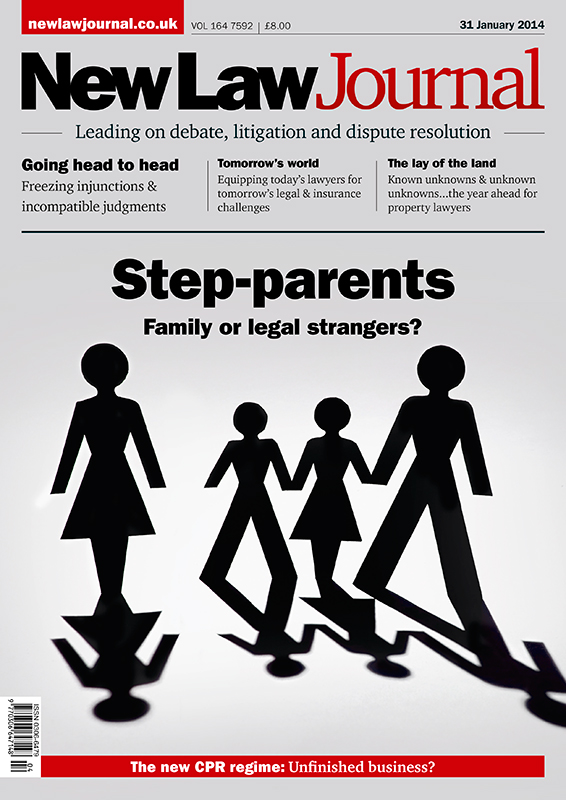
Roger Smith takes legal lessons from the US
Lehna Hewitt & Camilla Fusco outline the legal implications of step-family relationships
Incompatible judgments on the same day have led to confusion over the scope of standard wording, says David Sandy
What does the year have in store for property law asks Martin Dray
Haxton v Philips Electronics UK Ltd [2014] EWCA Civ 4, [2014] All ER (D) 138 (Jan)
Re C (a child) (guidance on proceedings involving profoundly deaf parent) [2014] All ER (D) 128 (Jan)
Healey Sports Cars Switzerland Ltd v Jensen Cars Ltd [2014] EWHC 24 (Pat), [2014] All ER (D) 158 (Jan)
IM v LM and others [2014] EWCA Civ 37, [2014] All ER (D) 150 (Jan)
Fonecomp Ltd v Revenue and Customs Commissioners [2013] UKUT 0599 (TCC), [2014] All ER (D) 126 (Jan)
Marley v Rawlings and another [2014] UKSC 2, [2014] All ER (D) 132 (Jan)
MOVERS & SHAKERS

NLJ Career Profile: Mark Hastings, Quillon Law
Mark Hastings, founding partner of Quillon Law, on turning dreams into reality and pushing back on preconceptions about partnership

Kingsley Napley—Silvia Devecchi
New family law partner for Italian and international clients appointed

Mishcon de Reya—Susannah Kintish
Firm elects new chair of tier 1 ranked employment department






